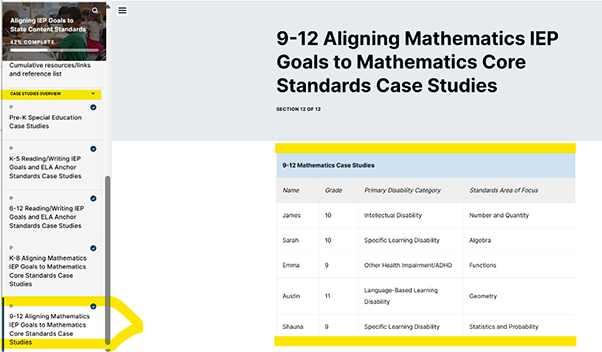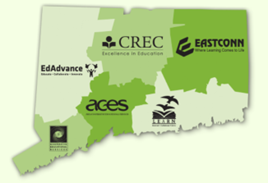Bureau of Special Education Update, April 2025
Newsletter Contents: From the Director's Desk | Bureau Updates | Feedback/Input Needed | Fiscal Matters | Policies and Guidance | Abilities in Action | Training and Professional Development Highlights | Resources | Upcoming Events
From the Director's Desk
Welcome to the first edition of our Bureau of Special Education Newsletter! The purpose of our newsletter is to share important updates, guidance, and resources related to special education. The newsletter will be posted on the special education Bureau Bulletin website and searchable by date and/or keyword for future reference. If you are not already registered to receive our updates, please take a moment to register by clicking on the following link: SDE alerts.
We know that each day, you witness the incredible strength, resilience, and limitless potential of our students. Despite our current challenges that pose potential barriers to our collective work, we continue to creatively and collectively seek opportunities to break barriers and positively impact student outcomes and create inclusive spaces where every student thrives and feels a sense of belonging.
In this issue, you’ll find helpful resources, important updates, new training opportunities, and recognition of great work occurring across the state as we continue to support students of all abilities. Let’s celebrate the progress, embrace the challenges, and continue making a difference.
Together, we empower, we inspire, we achieve!

Bryan Klimkiewicz, Special Education Division Director
Bureau Updates
The CSDE welcomes a new Bureau Chief!
 On April 4, 2025, the Bureau of Special Education welcomed our new Bureau Chief, Katherine Matz. Katherine comes to the CSDE with a wealth of knowledge and experience as a special education leader in the state, most recently serving in the role of Assistant Superintendent for Special Education and Student Services in Easton, Redding, & Region 9 Public Schools. Katherine also has experience as a Director of Pupil Services in New Fairfield, a Director at Touchstone School, (NAFI), and served as a special educator in Newtown and South Windsor public schools. We look forward to Katherine’s leadership and the Bureau’s increased capacity to support our families, educators and most importantly our 94,000+ students with disabilities.
On April 4, 2025, the Bureau of Special Education welcomed our new Bureau Chief, Katherine Matz. Katherine comes to the CSDE with a wealth of knowledge and experience as a special education leader in the state, most recently serving in the role of Assistant Superintendent for Special Education and Student Services in Easton, Redding, & Region 9 Public Schools. Katherine also has experience as a Director of Pupil Services in New Fairfield, a Director at Touchstone School, (NAFI), and served as a special educator in Newtown and South Windsor public schools. We look forward to Katherine’s leadership and the Bureau’s increased capacity to support our families, educators and most importantly our 94,000+ students with disabilities.
Feedback/Input Needed
SLD/Dyslexia Assessment Resource Guide for Specific Learning Disabilities in Reading and Written Expression Survey
In response to stakeholder feedback, the Connecticut State Department of Education will be updating the 2023 version of the Connecticut Assessment Resource Guide for Specific Learning Disabilities in Reading and Written Expression. Prior to engaging in the revision process, the CSDE has developed a survey to gather information regarding how special education teachers, related service provers, and other educators in Connecticut currently use the Guide.
All submissions are anonymous. View the survey.
Fiscal Matters
Individuals with Disabilities Education Act (IDEA) Part B Section 611/619 Grant Update
FFY25 IDEA Part B Grant State Application
The CSDE has completed the IDEA Part B Grant State Application, which is available for public inspection on the CSDE website: Special Education Fiscal RFPs and Grants.
The 60-day public inspection period is from March 12–May 12, 2025. The 30-day public comment period is from April 1–30, 2025. The CSDE will host two in-person conference hearings to accommodate public comments on Friday, April 11th from 1:30–2:30 p.m. at the New England Assistive Technology Center, 120 Holcomb Street, Hartford, CT; and Friday, April 25th from 10:00–11:00 a.m. at the State Education Resource Center (SERC), 175 Union Street, Waterbury, CT.
Print copies of the grant application are available at the Regional Education Service Centers: ACES, 350 State Street, North Haven; CES, 40 Lindeman Drive, Trumbull; CREC, 111 Charter Oak Avenue, Hartford; EASTCONN, 376 Hartford Turnpike, Hampton; EdAdvance, 355 Goshen Road, Litchfield; and LEARN, 44 Hatchetts Hill Road, Old Lyme. Print copies are also available at the Connecticut Parent Advocacy Center, 5 Shaws Cove, Suite 102 in New London and the SERC, 175 Union Street in Waterbury.
Written comments may be directed to: Alycia Trakas, Connecticut State Department of Education, Bureau of Special Education, P.O. Box 2219, Hartford, CT 06145 or Alycia.Trakas@ct.gov. Any questions regarding the State Application may be directed to Ms. Trakas at 860-713-6932.
FY 26 IDEA Part B Grant Subrecipient Application (SA)
The FY26 IDEA Part B SA Grant Section 611/619 opened on 3/12/25 in the electronic grant management system (eGMS). LEAs had to change the status (at the top of the Sections page) to “Application Started” by April 1, 2025. The FY26 IDEA Part B SA Grant Section 611/619 will be due on or before 5/12/25.
Please address any fiscal matters regarding the IDEA Part B Grant Section 611 to Alycia M. Trakas by phone at 860-713-6932 or by email at Alycia.Trakas@ct.gov.
Please address any fiscal matters regarding the IDEA Part B Grant Section 619 to Renee Kleinman by phone at 860-713-6468 or by email at Renee.Kleinman@ct.gov.
Policies and Guidance
CSDE General Supervision
The CSDE envisions a high-quality, integrated system of General Supervision for the provision of special education and related services in Connecticut, resulting in positive outcomes for students with disabilities. Through a robust system of support and shared accountability our goal is to improve students' educational outcomes, empower educators and parents, and promote an inclusive educational system that prepares all students to thrive academically, socially, and personally.
State Regulation Reminder
A full copy of the individual education program (IEP) shall be sent to the parents within five (school) days after the planning and placement team (PPT) meeting to develop, review or revise the individualized education program (RCSA § 10-76d-13(a)(6)).
Scenario: If a student withdraws/moves/transfers to another district and is exited in PSIS prior to the team finalizing the student's IEP/ISP/PPPSS document, the document still must be finalized by the responsible district within five school days after the PPT meeting. To avoid the need to request a reactivation of the student record, please make every effort to finalize the IEP/ISP/PPPSS document prior to the student withdrawal from district. If a document is not finalized prior to the student withdrawal, please promptly submit a CT-SEDS Help Desk ticket to request a reactivation to complete the process. Once the record is reactivated, the process should be completed and document finalized within 2 business days.
Related CT-SEDS Reminders
Each PPT Notice of Meeting should result in:
- A Finalized IEP, ISP or PPPSS or
- Record of Meeting Document
If a PPT Meeting Notice was created and the meeting was not held:
- The district can utilize the Contact Log in CT-SEDS to document the reason the meeting was not held and note if it was rescheduled.
Support and Technical Assistance: Please submit a CT-SEDS Help Desk ticket for assistance.
Extended School Year (ESY) Services Reminders
RCSA, Sec. 10-76a-1. General definitions. "Extended school day or extended school year services" means (A) special education and related services that are provided to a child with a disability (i) beyond the normal school day or school year of the board of education, (ii) in accordance with the child's individualized education program, and (iii) at no cost to the parents of the child and (B) meet the standards of the Department of Education.
- Eligibility for ESY must be determined each year by the PPT.
- ESY eligibility and the content and location of the program are generally discussed at the annual review. This should occur early enough to allow sufficient time for dispute resolution regarding ESY to be resolved prior to the start of the ESY program.
-
34 CFR 300.106 The federal regulations state:
-
General.
- (1) Each public agency must ensure that extended school year services are available as necessary to provide FAPE, consistent with paragraph (a)(2) of this section.
- (2) Extended school year services must be provided only if a child's IEP Team determines, on an individual basis, in accordance with Sections 300.320 through 300.324, that the services are necessary for the provision of FAPE to the child.
-
(3) In implementing the requirements of this section, a public agency may not
- i. Limit extended school year services to particular categories of disability; or
- ii. Unilaterally limit the type, amount, or duration of those services.
-
Definition. As used in this section, the term extended school year services means special education and related services that
-
(1) Are provided to a child with a disability—
- i. Beyond the normal school year of the public agency;
- ii. In accordance with the child's IEP; and
- iii. At no cost to the parents of the child; and
- (2) Meet the standards of the SEA.
-
(1) Are provided to a child with a disability—
-
General.
- Decisions regarding a child's eligibility for ESY services are to be made on an individual basis based on the needs of the child.
- ESY services cannot be limited to children in particular disability categories.
- The type of service, amount of service and duration of the ESY program for eligible children is determined by the needs of each individual child who is eligible for ESY services.
- Typically, ESY services are provided during the summer months. However, there is nothing in § 300.106 that would limit a public agency from providing ESY services to a child with a disability during times other than the summer, such as before and after regular school hours or during school vacations, if the IEP Team determines that the child requires ESY services during those time periods in order to receive FAPE. The regulations give the IEP Team the flexibility to determine when ESY services are appropriate, depending on the circumstances of the individual child.
Mastery Testing Reminder
Connecticut General Statutes §10-14n, requires all public-school students in the specified grades to participate in statewide mastery examinations.
This includes:
- Grades 3-8 and Grade 11: Annual assessments in reading, writing, and mathematics.
- Grades 5, 8, and 11: Additional statewide science assessments.
Connecticut state law does not provide an option for parents to opt their children out of these required assessments. However, if a student refuses to participate, schools are typically required to document the non-participation. While individual districts may have policies regarding how non-participation is handled, there is no formal opt-out process recognized by the state.
Documenting Statewide Assessments in CT-SEDS:
When convening a PPT or Section 504 meeting, teams should select the student's current grade of enrollment and any other grade covered by the duration of the plan. It is important that the plan keeps the current grade of enrollment through the duration of the school year to ensure that any accessibility supports or assessment determination remains through the reporting period.
Helpful Tips When Holding PPTs or 504 Meetings During the Summative Testing Window:
When PPTs and Section 504 Teams meet during the testing window, teams should keep the following in mind to ensure accurate summative testing for all students.
- If there is a change to the IEP Document or Section 504 plan that impacts testing eligibility (e.g., new eligibility for the alternate vs. standard). Contact your District Administrator (DA) immediately so that testing for the student can be delayed until the plan implementation date. Accessibility supports, including designated supports and accommodations, and eligibility determination, will only sync from CT-SEDS to TIDE once the plan is both finalized and implemented. Once both these occur in CT-SEDS, a sync will occur between CT-SEDS and TIDE which can take 48 hours to populate within the testing platform. Communication, to DA/School Coordinator (SC), and delay in testing will minimize test irregularities and over testing.
- Do not schedule testing if the Alternate Assessment Indicator in TIDE is not set to "Yes" (If eligible for Alternate Assessment System), then the student will only have access to the standard assessment. Contact the Case Manager to review any discrepancies in test rostering or missing documentation.
BCBAs in Schools: Guidelines and Professional Standards for Connecticut
The CSDE recently published BCBAs in Schools: Guidelines and Professional Standards for Connecticut. The purpose of this document is to provide educators with an understanding of the training and expertise of BCBAs, BCaBAs, and RBTs, and the unique application of their training to school-based settings. This guidance document was developed with input from a diverse group of key collaborators to define and clarify the scope of practice for behavior analysts working in schools.
School-based behavior analysts engage in a multitude of roles and responsibilities within educational settings. The professional standards delineated aim to ensure that behavior analysts define and ensure practice occurs within their scope of competence, and that collaboration, capacity-building, and positive outcomes for students are at the center of the work.
The Connecticut State Department of Education (CSDE) recommends that this guidance be used in concert with local school district policies and procedures to develop frameworks and practices that maximize positive student outcomes.
We are excited to announce a training/overview series that has been developed in collaboration with the RESC Alliance.
Live Webinar Sessions: BCBAs in Schools: Guidelines and Professional Standards for Connecticut
 Facilitated by Dr. Jennifer Connolly, BCBA-D & Dr. Ravit Stein, BCBA-D
Facilitated by Dr. Jennifer Connolly, BCBA-D & Dr. Ravit Stein, BCBA-D
All who want to learn more about the BCBAs in Schools Guidelines and Professional Standards for CT are invited to register for live webinar sessions. Each session will focus on differentiated material based on the target audience, followed by Q&A. See below for the dates, times, and topics available, as well as a Google form to register for the event.
Session #1: Brief Overview of BCBAs in Schools: Guidelines and Professional Standards for Connecticut
- Date: 4/23/25
- Time: 2-2:50pm
- Description: This session will provide a general overview of the content in the document, relevant for anyone who is, or works with, a behavior analyst.
- Target audience: All are welcome.
Session #2: Behavior Analysts' Roles and Responsibilities (4/28/25; 10 am and 11 am)
2a. What Behavior Analysts Should Know
- Date: 4/28
- Time: 10:00-10:50am
- Description: Provides more detailed content on Part 1 of the BCBAs in Schools document, focusing on how a behavior analyst can use the document to shape their role.
- Target audience: All are welcome; however, this session will be geared towards behavior analysts, include BCBAs, RBTs, BCaBAs, or BCBA students/supervisees.
2b. What Supervisors and School Leaders Should Know
- Date: 4/28
- Time: 11:00-11:50am
- Description: Provides more detailed content on Part 1 of the BCBAs in Schools document, focusing on what a supervisor or school leader needs to know about the role of behavior analysts.
- Target audience: All are welcome; however, this session will be geared towards those who supervise behavior analysts, work with behavior analysts, or employ behavior analysts.
Session #3: Professional Standards for Behavior Analysts (5/14/25; 1:30 pm and 2:30 pm)
3a. What Behavior Analysts Should Know
- Date: 5/14
- Time: 1:30-2:20pm
- Description: Provides more detailed content on Part 2 of the BCBAs in Schools document, focusing on what a behavior analyst needs to know about their professional standards in schools.
- Target audience: All are welcome; however, this session will be geared towards behavior analysts, including BCBAs, RBTs, BCaBAs, or BCBA students/supervisees.
3b. What Supervisors and School Leaders Should Know
- Date: 5/14
- Time: 2:30-3:20pm
- Description: Provides more detailed content on Part 2 of the BCBAs in Schools document, focusing on what a supervisor or school leader needs to know about the professional standards of school-based BCBAs.
- Target audience: All are welcome; however, this session will be created for those who supervise behavior analysts, work with behavior analysts, or employ behavior analysts.
Abilities in Action

Westport Day School Special Education College Fair
On Thursday, March 20th, Westport Day School hosted their second annual Special Education College Fair. Over 30 Colleges and providers from Connecticut and surrounding states came to Westport Day School to share with students who hold an IEP the services, accommodations, and support that were available to them. Samantha Cook, the Education director/ Chief Administrator of the school came up with the idea two years ago after attending a traditional college fair promoting their Next Step one year transition program.
The Westport Day School team spent several days calling and meeting with colleges asking about the supports and accommodations available to students with an IEP and made sure that the representatives they sent to the fair could share these resources with the students coming through. The fair was a huge success. Over 220 students, their families, and professionals came through the fair eager to learn about what was out there and left the fair hopeful and excited about the prospective future. Families came from all over Connecticut, New York State, and Long Island to attend the fair.
One of Westport Day School's alumni Students Taylor Foch came to the fair to speak about the success she is currently having at Hartwick School as a Sophomore and what she has been offered. The success of the event and the need for students with disabilities to know about the opportunities out there for them to attend colleges and universities has Samantha Cook and the Westport Day School team excited to announce this event will now be annual with a date of March 19, 2026, for next year.
Your district/program could be featured in the next issue! Inspire others by submitting your success stories or achievements! We look forward to hearing from you! Submission Form: Abilities in Action
Training and Professional Development Highlights
Secondary Transition Coordinator Training (Registration Live!)
We are excited to announce the upcoming training program for transition coordinators developed by the CSDE in consultation with DDS, ADS and the RESCs pursuant to Conn. Gen. Stat. § 10-74q.
This full-day, in-person session provides a comprehensive overview of secondary transition planning through the role of the Secondary Transition Coordinator. Participants will examine professional responsibilities, including legal requirements, best practices, and strategies for supporting students with disabilities. The session highlights essential transition resources, services, and public programs offering transition-only services to enhance planning and family engagement. Completion fulfills state-mandated training requirements and strengthens participants' ability to support successful post-school outcomes.
Each RESC will provide this in-person training at no cost to transition coordinators. For this initial rollout, there will be six sessions offered through the months of May and June, with one session at each RESC location.
While some districts have identified both a primary and secondary contact, these initial six sessions are limited to one individual per district. Additional training opportunities will be available throughout the 25-26 school year.
Enrollment Guidelines:
- Spring 2025: only primary Secondary Transition Coordinator designees should enroll.
- Fall 2025 and beyond: sessions will open to both primary and secondary designees.
- Register Now
The timeline for completion of this training, outlined in Conn. Gen. Stat. § 10-74r, is the following:
- If appointed before May 1, 2025, training must be completed within three years.
- If appointed after May 1, 2025, training must be completed within one year.
Please contact Laura Luna, laura.luna@ct.gov, if you have any questions.
CSDE Standards Alignment Module: Highlighting Student Case Studies

CSDE has updated the online module Aligning IEP Goals to State Content Standards to provide direct access to sample student case studies organized by grade, disability category and content area standards focus. The case studies include students who are functioning significantly below grade level as examples for how to align IEP goals to grade level standards. Each case study provides a description of the student's current present levels of performance (PLOP), impact statement and annual goal. Then the case study describes the content area standard to which the goal aligns.
- Aligning IEP Goals to State Content Standards - Overview
- Submit your request here for In-District Virtual Standards Alignment Coaching Sessions
Restraint and Seclusion in Schools
Part 1: A Dialogue about the Current Connecticut Laws Regarding Restraint and Seclusion in Schools
The video is an overview of Laws Regarding Restraint and Seclusion in Schools, the role of the Planning and Placement Team (PPT), documentation and reporting requirements for restraint and seclusion reports, the importance of treatment planning based on direct results from the Functional Behavioral Assessment (FBA) process and behavioral intervention.
Training Resources for CT-SEDS, PPTs and 504 Teams and Statewide Summative Assessments
The Performance Office has been developing professional development and training resources for PPT and Section 504 Teams for special populations and summative assessments. Please visit the following websites:
- Resources for PPTs and 504 Teams Related to CT SEDS and Statewide Assessments
- Connecticut Sensible Assessment System--Training
Resources
Performance Office, Student Assessment, Special Populations
The Performance Office Student Assessment posts monthly Student Assessment News where we provide updates and guidance on assessment and special populations. To automatically receive the Student Assessment News and/or other announcements, register for e-mail updates on the CT Comprehensive Assessment Program Portal.
Special Ed Connection

Don’t forget! CSDE / Bureau of Special Education provides your LEA with access to Special Ed Connection® (www.specialedconnection.com.)
Special Ed Connection® is your one-stop-shop for:
- Best practices to meet legal and regulatory mandates
- Ready- to-use charts, checklists and professional development tools to guide and train staff
- Staying current on administration policy changes from the Trump administration, ED, OSEP, OSERS and OCR
- Searchable access to decisions and rulings from all states and territories
- Summaries and full text of judicial decisions and administrative rulings
- "What it means" explanation of each case's key points in a few sentences
If you need your login information or would like to schedule a webinar for your staff contact the Special Ed Connection® Help Desk Team: specialedconnection@lrp.com or 800-515-4577 x6303.
Upcoming Events
SERC Dismantling Systemic Racism (Conference)

- Date and Time: May 9 – 8:30am-3:30pm
- Location: Connecticut Convention Center 100 Columbus Boulevard Hartford, CT 16103
- Registration is Open: Register Today!
Dismantling Systemic Racism, sponsored by the State Education Resource Center (SERC) in collaboration with the SERC Foundation, focuses on ways to support, promote, and develop racial equity in education.
The full-day conference supports educators, families, and community leaders who seek to confront racist structures and practices to better serve Connecticut's students and their families, through advocacy and the development, implementation, and sustainability of innovative, culturally relevant programming.
In order to eliminate racially disparate outcomes, the focus is on all students, but particularly Black and Brown students, as well as multilingual students and students with disabilities.
RESC Alliance Special Education Training Website

RESC Alliance Special Education Trainings Website
CT-Dyslexia Awareness Campaign
Check out April's Events Here: Dyslexia Awareness Campaign


